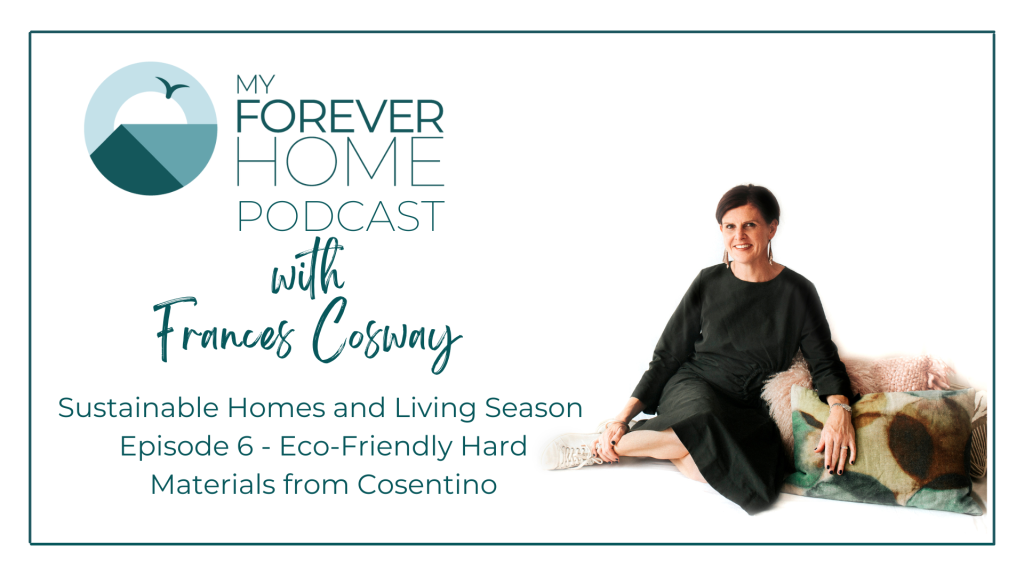As part of the Sustainable Homes and Living Season, Frances welcomes Itay Shimony from Cosentino to chat through the environmental credentials of their hard surface materials produced in Spain. In particular, they chat about the Circular economy Cosentino has created in the company, and the production of minimal silica in their reconstituted stone products, along with carbon neutral Dekton.
As a family business, Cosentino are also strong contributors to their local community in Spain, creating a sense of responsibility to the environment, and their people.





